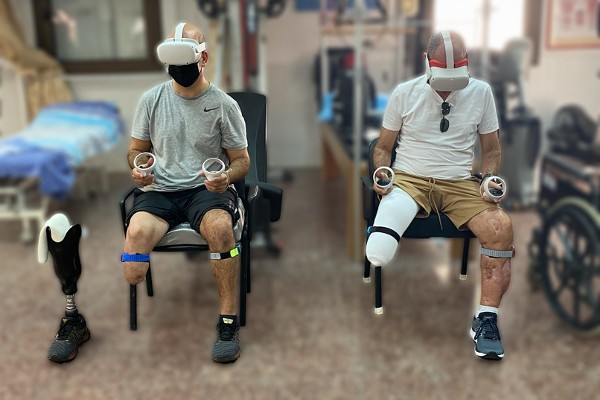MyMove gives a “helping hand” to millions of people who can’t use their own.
By Pesach Benson, United with Israel
Imagine being unable to use a smartphone, tablet or laptop because your hands don’t work.
Around 58 million Americans have problems with limited hand and arm mobility either due to conditions from birth, or because of illness and injury. Some can’t properly grasp or control objects. Others have limited strength.
Now, an Israeli startup is opening up digital worlds for the mobility impaired.
6Degrees, a Tel Aviv based startup, has developed a wristband allowing users to operate any smart device. By simply gesturing with a wrist or arm, for example, an amputee can type an email, a person with cerebral palsy can play computer games and even someone with hand tremors can draw.
“Our vision is to allow anyone to control smart devices or the digital world using their existing motion and their existing abilities,” said 6Degrees CEO and co-founder Miri Berger to NoCamels.
The wristband is called MyMove. It collects data on the user’s movements and adapts to the individual’s particular disabilities.
“We don’t ask you to install a device because all of the calibration is in the hardware,” Berger told NoCamels. “That’s how we’re different – we do it in real time, and we do it in a way that is personalized to the user.”
MyMove, which costs $900, went on sale in April. Americans can purchase the wristband with federal assistance through the US Assistive Technology Act.
6Degrees is also participating in a pilot program at the Sheba Medical Center in Tel Aviv. Amputees suffering from phantom pain — feelings of a pain or discomfort from a body part that is no longer there. Patients are rehabbing with virtual reality headsets and 6Degrees’ technology.
Berger told NoCamels she founded 6Degrees with her husband, Aryeh, after he had to enter rehabilitation for an injury during his IDF service. Aryeh, a former paratrooper, is 6Degrees’ co-founder and chief technology officer. Berger said she was struck by how little independence people with injured limbs have.
That observation reinforced itself later on while she was studying at Pratt Institute in Brooklyn where she saw a professor with a prosthetic hand unable to use his computer while teaching.
“We wanted to help people who lost their fine motor skills regain their independence,” Berger told NoCamels.
